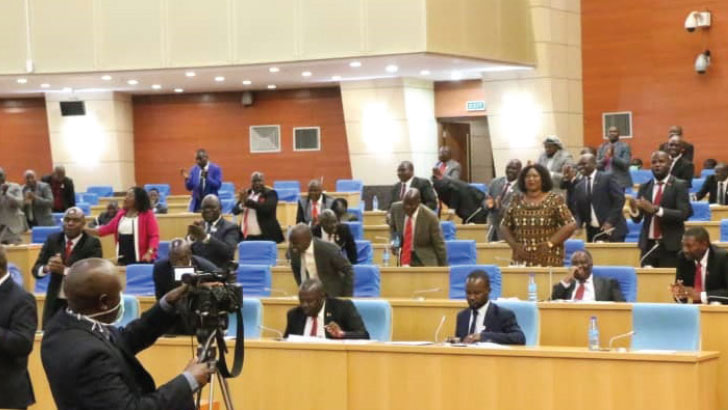Study recommends Watertight PFM Act
A new study has recommended a tight and effective Public Finance Management (PMF) Act to safeguard taxpayers’ money from further abuse by deterring Treasury to spend outside the approved budget.
A consortium of Oxfam in Malawi, Economics Association of Malawi -Ecama and Lilongwe University of Natural Resources and Agriculture – Luanar which conducted the study with support from the European Union, want the amended PFM Act to be tabled in parliament soon to seal the identified loopholes.
A consortium of Oxfam in Malawi, Economics Association of Malawi (Ecama) and Lilongwe University of Agriculture and Natural Resources (Luanar), which conducted the study, want the amended PFM Act to be tabled in Parliament soon to seal the identified loopholes.
The study found that Section 43(b) of the Act legalises extra budgetary expenditure outside the appropriation and opens up the system to Treasury’s abuse of the budget approval process.
In view of this, the study recommends the removal of the section to ensure no extra budgetary spending until the supplementary Appropriation Bill is passed in Parliament and assented to by the President.

Reads the study in part: “The Minister of Finance should be required to issue an expenditure warrant to the Secretary to the Treasury to spend in accordance with the Appropriation Act and no extra budgetary expenditures should be permissible unless they are authorised in writing by the Minister of Finance by way of variation of the original expenditure warrant.”
Oxfam in Malawi governance programme manager Mathias Kafunda presented the study findings in Lilongwe on Friday to the Budget and Finance, Public Accounts and Legal Affairs committees of Parliament to ensure that the recommendations are pushed for Treasury consideration.
He said Treasury has been losing a lot of money due to loopholes in the Act and the review is an opportunity to remedy the situation.
“As a consortium, we feel that if the recommendations are not taken on board, there is likely to be compromises in the management of public resources, the country will lose out, the malpractices will continue and we will not have stewardship of little public resources,” Kafunda said.
Budget and Finance Committee of Parliament chairperson Gladys Ganda said the analysis came at the right time when the PFM Act is under review, adding that the law needs to be strengthened to safeguard taxpayers’ money.
“The analysis has given an enhanced role on budget expenditure tracking and reporting of the finances that the government is using on behalf of Malawians,” she said.
Ganda acknowledged that civil servants are lowly paid and Treasury needs to consider the remuneration issues amid tight budget so that public servants are not tempted to abuse money.
University of Malawi associate professor of economics Ronald Mangani, who is a former Secretary to the Treasury, said the observed weaknesses in the PFM Act are a reflection of deeper fiscal problems.
He said the structure of incentives consists of a poor framework of sanctions and rewards that facilitate rent-seeking.
Mangani, who was engaged to do the PFM Act analysis for the consortium, called for redress of gross disparities in the public service remuneration system which provides immoral justification for abuse of resources to recoup perceived lost earnings.
“The establishment of the National Remuneration Board would be a big step in the right direction,” Mangani said.
He said inaction on reported cases of financial abuse and mismanagement by appointing authorities and the delayed conclusion of cases involving such malpractices lower the risk and raise the utility of engaging in malpractice.
The current PFM Act was passed in 2003 and was amended in 2006, 2010 and 2018.
But despite the modifications, several corruption and abuse of funds scandals still occurred, including the plunder of taxpayers’ money at Capital Hill dubbed Cashgate exposed in September 2013.




